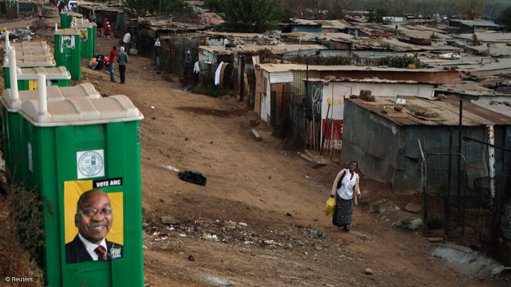
Photo by: Reuters
Despite its mineral resources, the SADC region has the worst health and poverty gap on the planet, the Chairperson of the Bench Marks Foundation, Bishop Dr Jo Seoka, said this morning in Braamfontein.
Speaking at the opening of Bench Mark’s two-day conference, Bishop Seoka said that, while a few in the region are extremely rich, the vast majority of people in SADC are desperately poor, as reflected in high employment, homelessness, crime and corruption.
“Given the reality of the mineral wealth of these countries, they should have a very high standard of living. On the contrary, the region with the highest mineral wealth on the planet is also the region whose people living in abject poverty, with the highest rates of HIV/Aids infections, the highest incidence of tuberculosis, the highest levels of silicosis – a disease associated directly with mining – malaria, and bilharzia,” he added.
Bishop Seoka told delegates that mining is usually portrayed as a investment for development, source of jobs and a contributor to the GDP.
“It (mining) is seen as the holy cow of economics and sacrosanct. Not to be questioned or challenged, in spite of the fact that hundreds of thousands of poor people live in abject poverty because of loss of arable land, livelihoods, aggravating health conditions, cultural and social upheaval, all of which manifest itself in unemployment and pushes poor communities to the margins of society.”
He noted that mining across the world is suffering a crisis of legitimacy for two reasons.
“Firstly, because of its negative impact on climate change through air pollution, water scarcity and contamination. And second for its great cost of communities and rural life styles which gives rise to serious health concerns.”
He added that Bench Marks has over 100 community monitors in 40 mining community in South Africa, with a reach into Botswana, Zambia, Tanzania, Zimbabwe, Kenya and Mozambique.
“A common theme that we hear all the time is that ‘mining is destroying our environment, our people are suffering and no one is listening.’ Promises, such as to create jobs, are made by mining houses, but we see growing unemployment around mining areas, underdevelopment of community, air and water pollution, cracking houses and sick people. They say with one voice, ‘We don’t want mining. We are not consulted or listened to’.
“Our findings are that mines don’t do proper human rights and social due diligent impact assessments, but continue to operate without water licences when we are told that they have water problems,” he said.
Issued by Bench Marks Foundation